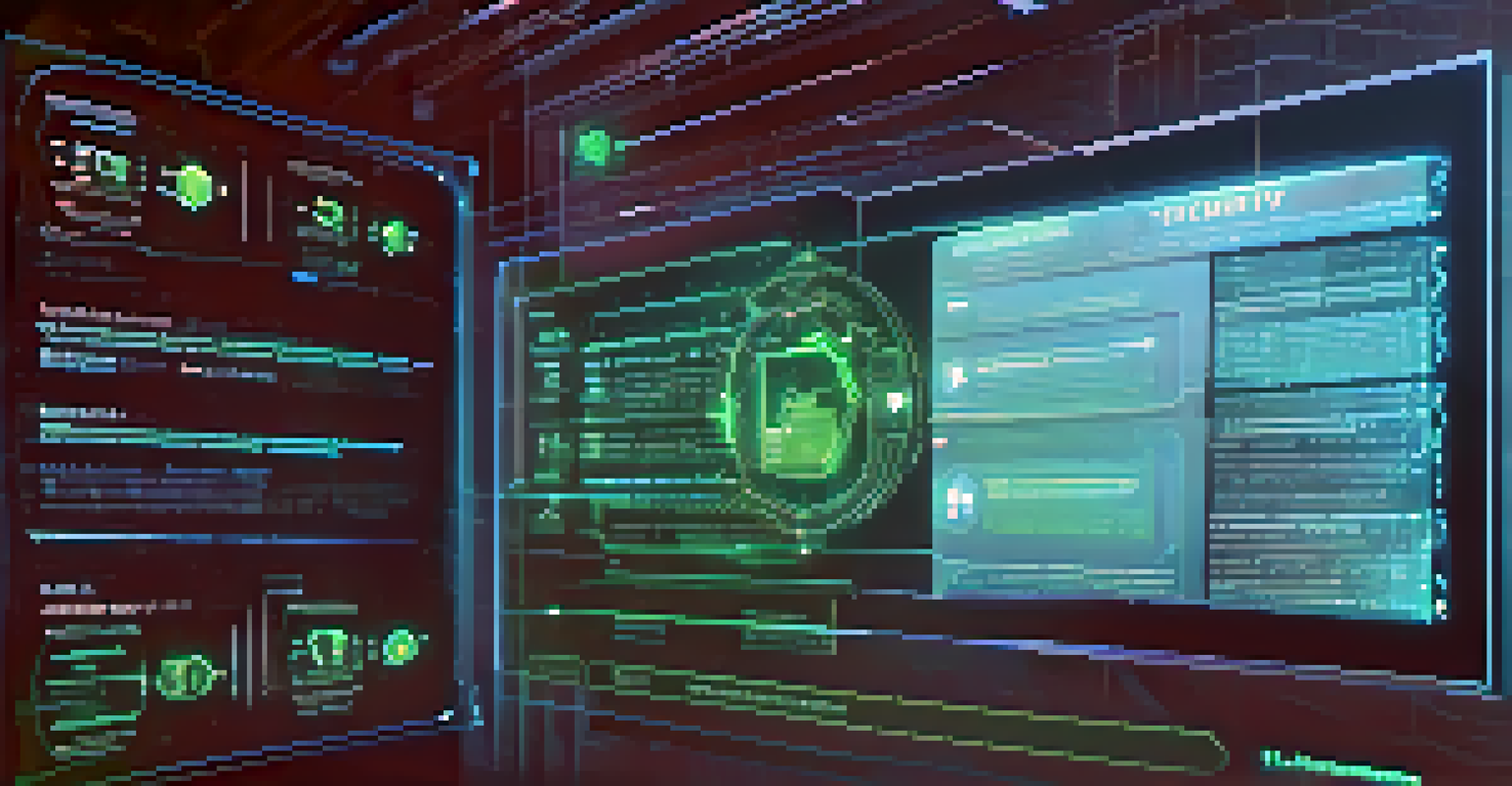Decentralization and NFT Security: Benefits and Drawbacks

Understanding Decentralization in the NFT Space
Decentralization refers to distributing authority and control across a network, rather than concentrating it in a single entity. In the context of NFTs (Non-Fungible Tokens), this means that ownership and governance are managed through blockchain technology, which allows for transparency and security. Imagine a library where every book is owned by a different person and can’t be removed or altered without everyone knowing – that’s the core principle of decentralization.
Decentralization is the future of the internet and the future of ownership.
This structure offers numerous benefits, such as reducing the risks of censorship and fraud. Since there’s no central authority, it’s much harder for a single party to manipulate or take away ownership of an NFT. This is particularly appealing for artists and creators who want to maintain control over their work without the interference of intermediaries.
However, decentralization also comes with its challenges. Without a central authority, users may find it difficult to resolve disputes or recover lost assets. Additionally, the sheer complexity of navigating decentralized platforms can be daunting for newcomers, which might limit broader adoption of NFTs.
The Role of Smart Contracts in NFT Security
Smart contracts are self-executing contracts with the terms of the agreement directly written into code, playing a crucial role in NFT security. They automate transactions and ensure that ownership transfers happen seamlessly without human intervention. Think of a smart contract as a vending machine; you insert your money and select your item, and the machine delivers it without requiring anyone to be present.

By utilizing smart contracts, creators can embed specific conditions for their NFTs, such as royalties on secondary sales. This not only protects their financial interests but also ensures that collectors are aware of the terms before purchasing. This transparency promotes trust in the NFT marketplace.
Decentralization Empowers NFT Owners
By distributing control, decentralization enables creators and collectors to engage directly without intermediaries.
However, smart contracts are not without risk. If there’s a vulnerability in the code, it can be exploited by malicious actors, leading to potential losses. Moreover, the irreversible nature of blockchain transactions means that once a contract is executed, it’s challenging to rectify any mistakes.
Benefits of Decentralization for NFT Owners
One of the most significant benefits of decentralization for NFT owners is the enhanced security it provides. Since NFTs are stored on a blockchain, they are less susceptible to hacking or theft compared to traditional digital assets held on centralized servers. Imagine keeping your valuables in a safe that’s locked and monitored by many – that’s what blockchain offers.
Smart contracts can automate processes, but they can also introduce new vulnerabilities if not properly designed.
Another advantage is the empowerment it gives to creators and collectors alike. Decentralization removes gatekeepers, allowing artists to directly connect with their audience, and collectors to purchase art without intermediaries taking a cut. This direct relationship can foster a more vibrant and engaged community around NFTs.
Finally, decentralization encourages innovation within the NFT space. With fewer restrictions, developers can experiment with new features and applications, leading to a diverse and dynamic ecosystem. This flexibility can result in exciting new ways for users to engage with their digital assets.
Challenges of Decentralization for NFT Security
While decentralization offers many benefits, it also presents significant challenges, particularly regarding security. The lack of a centralized authority means that users are responsible for their own security, which can be overwhelming for those unfamiliar with blockchain technology. It’s akin to owning a house without an alarm system – the onus is on you to ensure it’s safe.
Additionally, the decentralized nature of NFTs can lead to fragmentation in the market. Different platforms may have varying standards and practices, making it difficult for users to navigate and manage their assets effectively. This inconsistency can pose risks, as users might inadvertently engage with less secure platforms.
Smart Contracts Enhance NFT Security
Smart contracts automate transactions and embed conditions, promoting trust and transparency in NFT ownership.
Furthermore, the complexity of decentralized systems can create barriers to entry for new users. Without guidance, they may struggle to understand how to secure their wallets or interact with smart contracts, potentially leading to costly mistakes. This knowledge gap could hinder the growth and acceptance of NFTs in the mainstream market.
Real-World Examples of NFT Security Breaches
Despite the promise of enhanced security, there have been notable NFT security breaches that serve as cautionary tales. For instance, high-profile hacks have occurred where attackers exploited vulnerabilities in smart contracts, resulting in users losing valuable NFTs. These incidents highlight that while decentralization can enhance security, it is not foolproof.
Another example involved a phishing attack where users were tricked into revealing their wallet credentials. This incident underscores the importance of user education and awareness in the decentralized NFT landscape. Just like you wouldn’t share your bank details with a stranger, NFT owners need to be vigilant about whom they trust.
These breaches serve as reminders that even in decentralized systems, security cannot be taken for granted. Users must adopt best practices, such as using hardware wallets and being cautious of links and offers that seem too good to be true, to safeguard their assets.
The Future of Decentralization and NFT Security
Looking ahead, the future of decentralization in the NFT space seems promising yet uncertain. As technology evolves, we can expect improvements in security protocols and user interfaces, making it easier for newcomers to navigate the decentralized landscape. It’s much like the evolution of the internet; with time, things will become more user-friendly.
Moreover, as more artists and collectors embrace NFTs, the demand for robust security measures will continue to grow. This could lead to a more significant investment in developing decentralized platforms that prioritize user safety while maintaining the core benefits of decentralization. Innovation in this area will be crucial for attracting a wider audience.
Navigating Challenges of Decentralization
While decentralization offers benefits, it also presents security challenges that require user vigilance and education.
Ultimately, the balance between decentralization and security will dictate the future trajectory of NFTs. By addressing current challenges and learning from past mistakes, the NFT community can create a safer, more accessible environment for all participants.
Conclusion: Weighing Decentralization's Impact on NFT Security
In conclusion, decentralization offers both exciting benefits and notable challenges in the realm of NFT security. While it empowers creators and enhances transparency, it also places the responsibility for security squarely on the shoulders of users. This duality makes it essential for NFT enthusiasts to stay informed and proactive about their digital assets.
As the NFT landscape continues to evolve, understanding the implications of decentralization will be vital for everyone involved. By recognizing both the advantages and drawbacks, users can make more informed decisions when navigating this innovative space. It's a bit like walking a tightrope – maintaining balance is key.

Ultimately, with ongoing advancements and a community dedicated to learning, the future of decentralization and NFT security appears bright. The opportunity to shape a more secure and equitable digital art world is within reach, provided we approach it with care and diligence.